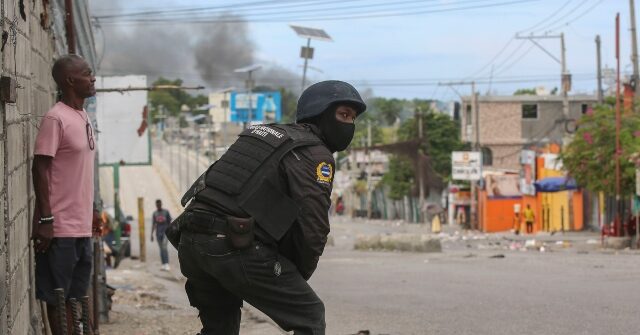American Airlines has decided to halt its plans to resume flights to Haiti, which were originally scheduled for February. This decision comes after the airline had initially suspended its daily operations from Miami to Port-au-Prince’s Toussaint Louverture International Airport until February 12. An airline spokesperson confirmed to the Miami Herald that any potential resumption of service is now tentatively being evaluated for late 2025. The airline expressed its commitment to Haiti—rooted in over 50 years of service—while citing safety, security, and customer demand as critical factors in their reassessment process. They also pledged to contact affected travelers to provide full refunds for their itineraries.
This step by American Airlines is reflective of escalating violence and instability in Haiti, notably following a recent incident involving a Spirit Airlines flight. A flight attendant was injured by gunfire while trying to land in Port-au-Prince, prompting the aircraft to divert to Cibao International Airport in the Dominican Republic. The severity of the situation has led both Spirit Airlines and JetBlue to suspend their services to Haiti as well. These developments underscore the dangers that commercial airlines and their passengers face in a country plagued by gang violence.
The violence in Haiti has reached alarming levels, with United Nations reports indicating that at least 4,500 people were killed in late 2023 alone, alongside thousands more displaced from their homes. The United Nations has also highlighted incidents involving their own operations, noting that a UN helicopter was shot at in Port-au-Prince airspace, though fortunately, there were no injuries. These violent events illustrate a deteriorating security environment that has led to drastic changes in airline operations to and from the country.
The impact of gang violence extends beyond mere statistics; it permeates the daily lives of countless Haitians. UNICEF has highlighted a particularly disturbing trend, revealing that nearly half of the country’s armed gang members are children. These young individuals find themselves in horrific situations, being coerced into roles as informants, cooks, and even sex slaves, besides being forced to engage in violence themselves. Such exploitation not only devastates individual lives but also destabilizes the fabric of Haitian society as a whole.
As American Airlines and other carriers navigate the complexities of resuming service to Haiti, the ongoing violence continues to pose significant challenges. The airlines have maintained a cautious approach, prioritizing the safety of their passengers and crew. The broader implications of such violence stretch far beyond travel; they affect humanitarian efforts, economic stability, and the general wellbeing of the Haitian community.
In conclusion, while American Airlines has reaffirmed its historical commitment to Haiti, the reality on the ground necessitates a careful reassessment of their operations. The airline’s decision to delay the resumption of flights until a safer environment can be established reflects an understanding of both operational risks and the humanitarian crisis unfolding in the nation. As the situation evolves, airline officials, along with international organizations, will need to work collaboratively to ensure the safety and security of all those involved in Haiti’s recovery and future prosperity.

